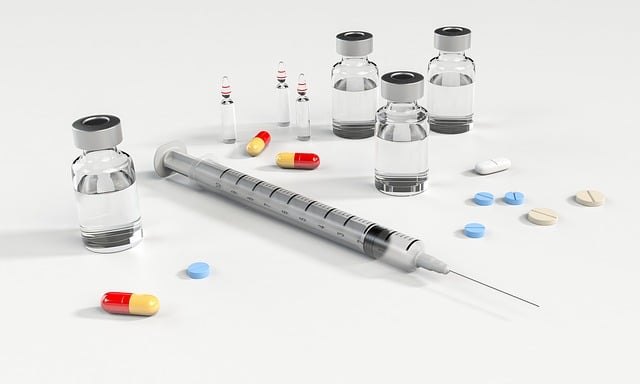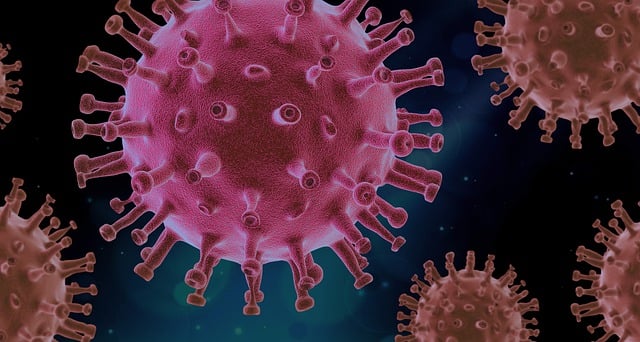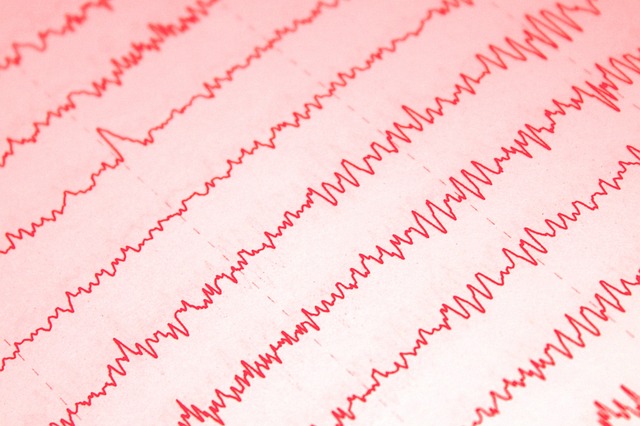Clear communication across languages is vital in medical research. Translation services for UK Medical Case Studies ensure precise transfer of complex medical information, preserving accuracy and integrity. Skilled linguists specializing in medical terminology and cultural nuances facilitate global knowledge sharing and enhance patient care worldwide while meeting legal requirements. These services play a critical role in navigating regional variations within the UK and ensuring translated case studies remain relevant. Choosing a reputable service guarantees accurate, reliable translations that maintain data integrity and patient confidentiality. Future advancements include machine translation and localization to meet growing global healthcare demands.
Do you require certified translations for UK medical case studies? Accurate and legally compliant translations are essential for sharing knowledge, facilitating research, and ensuring patient safety. This comprehensive guide explores the unique challenges of translating medical case studies within the UK’s regulatory framework. From understanding the significance of certification to navigating complex terminology and choosing the right provider, we provide insights into every step of the process. Discover the benefits of professional translation services and future trends shaping this critical field.
- Understanding the Importance of Certified Translations
- Medical Case Studies: A Complex Translation Task
- UK Regulations and Legal Requirements for Translations
- Ensuring Accuracy in Medical Terminology
- The Process of Obtaining Certified Translations
- Benefits of Professional Translation Services
- Common Challenges in Medical Case Study Translations
- Choosing the Right Translation Provider
- Future Trends in Medical Translation Services
Understanding the Importance of Certified Translations

In the realm of medical research and case studies, clear communication is paramount. When presenting findings from UK medical practices or conducting international collaborations, the need for accurate and certified translations becomes indispensable. Translation services for UK Medical Case Studies play a pivotal role in ensuring that complex medical information is conveyed with precision, preserving its integrity and meaning across linguistic barriers.
Certified translations are not merely word-for-word substitutions; they involve skilled linguists who grasp medical terminology and cultural nuances. This meticulous process guarantees that the translated document retains its original intent and accuracy, fulfilling legal or academic requirements. For researchers and healthcare professionals, accessing and contributing to global knowledge through certified translations empowers collaboration, facilitates research, and ultimately, improves patient care worldwide.
Medical Case Studies: A Complex Translation Task

Medical case studies, given their intricate nature and technical terminology, present a complex challenge for translators. When it comes to translation services for UK medical case studies, accuracy is paramount. Professionals must possess a deep understanding not only of the source language but also of the medical field in question, often requiring specialized knowledge in areas such as pharmacology, anatomy, or diagnostic procedures.
The complexity increases when dealing with regional variations within the UK, where different healthcare systems and terminologies exist. Translators need to be adept at navigating these nuances to ensure that the translated case study remains both precise and relevant for its intended audience. Effective communication of medical insights across languages demands a meticulous approach, making translation services a vital component in sharing knowledge and best practices within the global healthcare community.
UK Regulations and Legal Requirements for Translations

In the UK, medical case studies are subject to stringent regulations and legal requirements when it comes to translations. The accuracy and reliability of translated documents are paramount in healthcare settings, as they can directly impact patient care and treatment outcomes. Therefore, any translation services for UK Medical Case Studies must adhere to these standards.
The UK’s professional translation industry is heavily regulated to ensure the integrity of translations. Translations must be carried out by qualified, certified translators who possess specific expertise in medical terminology and practice. This ensures that technical concepts are accurately conveyed without misinterpretation or confusion. Additionally, healthcare institutions often require translated documents to comply with specific legal frameworks, such as data protection laws and patient confidentiality regulations, to safeguard sensitive medical information.
Ensuring Accuracy in Medical Terminology

When it comes to medical case studies, accuracy is paramount. Translating complex medical terminology requires a deep understanding of both the source and target languages, as well as expertise in medical fields. Certified translation services for UK medical case studies are essential to ensure that vital information is conveyed precisely and without error. These professional translators not only possess expert linguistic skills but also have access to specialized medical glossaries and resources, guaranteeing the accuracy and clinical relevance of every term translated.
Choosing a reputable translation service specializing in healthcare ensures that your case study maintains its integrity and scientific rigor. They employ native-speaking translators with extensive medical knowledge who are adept at navigating the nuances of medical terminology, ensuring that complex concepts are conveyed clearly and effectively in the target language. This level of precision is crucial for maintaining the quality and validity of your medical research and documentation.
The Process of Obtaining Certified Translations

Obtaining certified translations for UK medical case studies involves a meticulous process designed to ensure accuracy and reliability. It begins with the selection of a reputable translation services provider familiar with the medical domain. These professionals carefully review the case study, understanding its nuances and technical terminology. They then select translators who match the source language and target language requirements, guaranteeing expertise in both.
The actual translation process adheres to strict quality standards. Translators employ specialized medical glossaries and terminologies to maintain consistency and accuracy. Once translated, the documents undergo a rigorous review by an independent verifier who checks for any errors or inconsistencies. Upon approval, official certification is affixed, indicating the document’s authenticity and translating its validity as evidence in UK medical settings.
Benefits of Professional Translation Services

Professional translation services are indispensable when it comes to UK medical case studies, ensuring accurate and culturally sensitive communication across languages. These services offer numerous benefits, especially in a healthcare context where precision is paramount. One of the primary advantages is the guarantee of medical terminology’s exact interpretation, critical for preserving the integrity of patient records, research papers, and clinical trials.
With expert translators on hand, medical case studies can be translated into various languages while maintaining their original meaning and context. This is particularly crucial when sharing insights with international medical communities or treating patients from diverse linguistic backgrounds. Moreover, professional translation services adhere to strict confidentiality protocols, ensuring patient data remains secure during the translation process.
Common Challenges in Medical Case Study Translations

When it comes to medical case studies, accurate translations are paramount. However, navigating the complexities of this field presents several challenges. One of the primary difficulties is ensuring not just linguistic precision but also technical accuracy—medical terminology requires meticulous handling to maintain its nuance and integrity across languages.
Another challenge lies in cultural context. Different healthcare systems and practices worldwide mean that even straightforward concepts may have varying interpretations. Skilled translators for UK medical case studies must be adept at transcending language barriers while preserving the original meaning, ensuring the translated document remains clinically relevant and understandable for the intended audience.
Choosing the Right Translation Provider

When seeking certified translations for UK medical case studies, selecting the right translation provider is paramount to ensuring accuracy and reliability. Look for a company with extensive experience in healthcare documentation, as they will have a deep understanding of medical terminology and concepts. Reputable firms employ professional translators who are not only fluent in both languages but also possess relevant qualifications and expertise.
Check if the provider offers quality assurance processes, such as proofreading and editing by native speakers, to guarantee the precision and natural flow of the translated text. Additionally, ensure they have a robust system for handling sensitive information to maintain patient confidentiality. Opting for an established translation service specializing in UK medical case studies will safeguard the integrity of your documentation while adhering to legal and ethical standards.
Future Trends in Medical Translation Services

The future of medical translation services looks set to be driven by technological advancements and a growing demand for specialized healthcare communication. With the increasing globalization of medical research and patient care, there is a rising need for precise and culturally sensitive translations in various languages. Machine translation (MT) will continue to evolve, offering faster and more cost-effective solutions, but human translators skilled in medical terminology will remain indispensable for ensuring accuracy and contextually appropriate language.
Translation services for UK medical case studies are expected to become even more sophisticated, leveraging artificial intelligence (AI) tools to streamline processes. These technologies can aid in the rapid analysis of complex medical texts, enabling faster turnaround times without compromising quality. Additionally, there will be a greater focus on localization, tailoring translations to specific cultural and regional nuances, which is particularly crucial for patient education materials and clinical trials involving international participants.
When dealing with UK medical case studies, certified translations are paramount for ensuring accuracy and compliance. As regulations tighten and medical terminology becomes increasingly complex, professional translation services have become a game-changer. By choosing the right provider, you can navigate this intricate process seamlessly, leveraging benefits such as enhanced precision, cultural adaptability, and legal validity. Remember that in today’s global healthcare landscape, accurate translations are not just desirable—they’re essential for effective patient care and research integrity.
